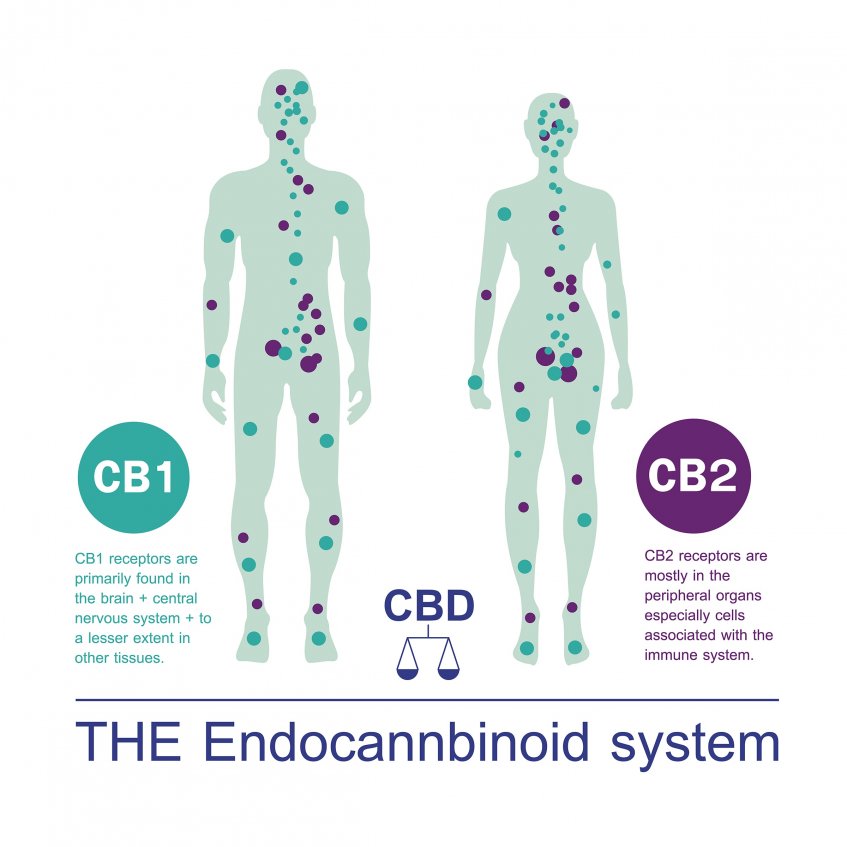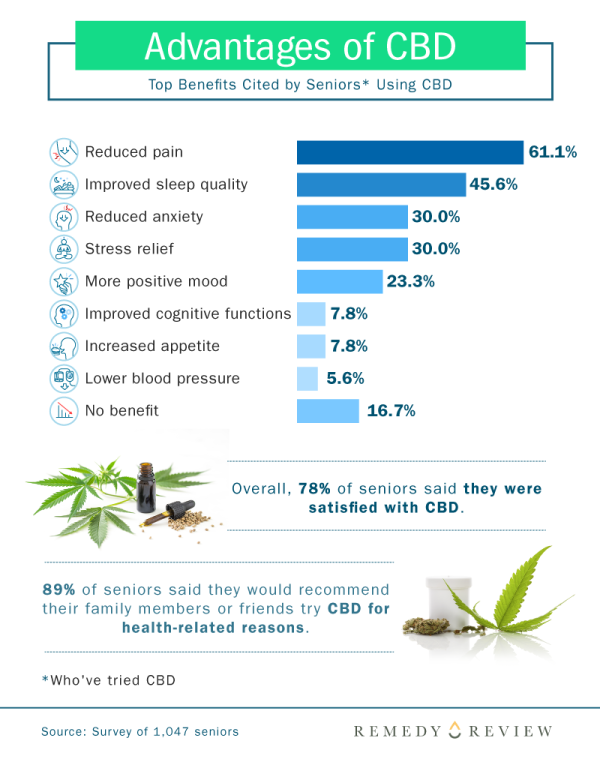Many seniors are exploring cannabis and its therapeutic benefits now that CBD oil and other marijuana-based products are hitting the market.
Medical marijuana has been available in many places for years and has helped seniors cope with pain and nausea due to chronic conditions. CBD is an extract of the marijuana plant that does not induce a high but is said to have many therapeutic properties.
CBD oil is non-addictive and generally considered safe. Seniors are taking it to manage issues like chronic pain, inflammation, sleep, mood disorders, and more. Its legality is still somewhat in question, however.
CBD extracted from hemp is legal in the United States, though some argue it is less effective than CBD oil derived from marijuana. Regulation issues have also given many retailers pause about whether to sell products with it.
Yet while the wrinkles are being ironed out, those seniors who take CBD are reporting multiple therapeutic benefits that may rival prescription drugs.
This post explores what CBD is, how it works in the body, potential side effects, and CBD benefits.
It is always recommended that you speak with your doctor before taking a new supplement or modifying a treatment plan. The study of CBD’s interactions with prescription medications is still ongoing.
What is CBD and how do you take it?
CBD is short for Cannabidiol, which is found in the cannabis flower. It is closely related to THC but does not get you high.
CBD acts on the endocannabinoid system, which is present in all mammals and regulates many physiological and cognitive processes. Taking CBD aims to repair any dysfunction in this system, which is said to be a factor that influences many chronic ailments and mood-related issues.

CBD is extracted from hemp and marijuana plants and made into an oil. This oil can be consumed in different forms including:
- CBD oil drops
- CBD-infused baked goods
- CBD oil swallowable capsules
- CBD oil inhalation through a vaporizer
- CBD topical creams and lotions for localized pain
Many seniors have already started taking CBD regularly and found it has helped them immensely.
Why CBD could be considered a viable supplement to traditional medicine
A study of over 1000 seniors who tried CBD by Remedy Review revealed that 51% say they saw an improvement in their quality of life.

Respondents of the same survey were also concerned about being overprescribed pharmaceutical drugs, and many are in favor of substituting CBD:
- 26% of respondents believe they take too many prescription medications
- 58% of respondents feel there is a substance abuse problem among within their community
- 53% of respondents would try CBD in place of prescription drugs
While studies on the benefits of CBD are still ongoing, these early results show promise for alternative treatment methods to chronic issues.
Does CBD Oil Have Side Effects?
The same survey by Remedy Review polled seniors on any side effects they experienced. The side effects were minor and only experienced by just over 25% of respondents:
- Fatigue: 5.6% of respondents
- Change in Appetite: 6.7% of respondents
- Dry Mouth: 12.4% of respondents
Benefits of CBD For Seniors
This section looks at specific conditions that CBD oil is said to treat. While many seniors are finding relief from taking CBD and it is generally considered safe, we encourage you to do lots of research before supplementing with CBD!
1. Chronic Inflammation and Pain Relief
CBD may inhibit responses in the body that cause inflammation through its effect on the endocannabinoid system. This shows promise as a non-addictive alternative to opioids, which have a high rate of addiction.
CBD oil has shown to be effective in treating pain for:
- Arthritis
- Join Pain
- Multiple Sclerosis
- Pain Related to Cancer
CBD oil rubs are available to rub onto areas of acute pain in the body.
2. Mood and Sleep Quality
CBD helps many people by promoting a sense of calm by interacting with mood receptors. Rather than acting as a harsh sedative, CBD helps improve the body’s tolerance to anxiety and stress. This leads to a better overall mood and natural sleep rhythms that don’t leave you feeling groggy in the morning.
3. Heart Health
One study has shown that CBD is effective at reducing blood pressure. Its anti-inflammatory properties also deter cell death due to oxidative stress. This dual-property of CBD may help keep the heart healthier as we age.
4. Memory and Neurodegenerative Diseases
While marijuana is known for memory impairment, some studies suggest CBD may actually improve cognitive function and stave off Alzheimer’s.
In terms of improving memory in healthy adults, improvements are largely attributed to CBD’s ability to reduce anxiety and insomnia. This naturally leads to more focus during the day and better memory.
Preliminary research by California’s Salk Institute in 2017 showed some evidence that CBD is able to aid with dementia. This is due to its natural ability to reduce inflammation, reduce oxygen buildup in the brain, and stimulate brain tissue. This research is still in its infancy, and there are no currently prescribed CBD treatments for Alzheimer’s.
Our Knowledge of CBD is Still Expanding
We are still living in the Wild West when it comes to CBD. Its disputed status as a legal substance means the studies of its potential are currently limited. Proponents of CBD also argue that it is most effective when augmented by other Cannabinoids.
Yet the promising results of current studies and the anecdotal evidence is pointing to a potential revolution in how we keep our body running smoothly.
While generally considered safe, you should consult a doctor if you decide to try regularly supplementing with CBD.

